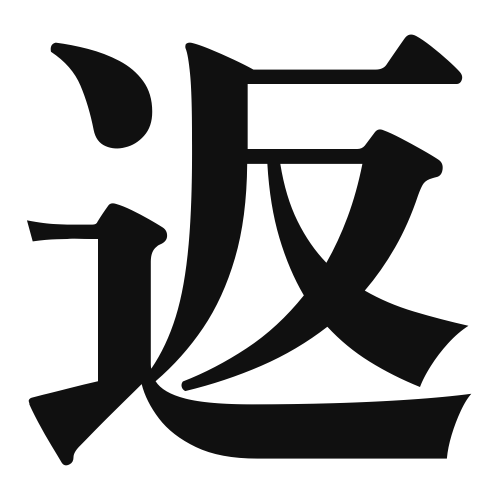1. Overview of Meaning
The kanji “返” (hen) primarily means “return” or “reply.” It is often used in contexts where something is being sent back or a response is being given.
2. Formation and Radical
Formation of the Kanji: The kanji “返” is a phonetic compound (形声文字), which combines the meaning of “return” with a phonetic component. The left side, “返,” suggests the idea of returning, while the right side provides the pronunciation.
Radical: The radical for “返” is “返” itself, which is also the complete kanji character.
3. Examples of Usage
Common Words and Phrases:
- 返事 (henji) – reply
- 返却 (henkyaku) – return (something borrowed)
- 返済 (hensai) – repayment
Example Sentences in Daily Conversation:
- 彼に返事をしました。 (Kare ni henji o shimashita.) – I replied to him.
- 本を返却するのを忘れました。 (Hon o henkyaku suru no o wasuremashita.) – I forgot to return the book.
4. Synonyms and Antonyms
Similar Kanji:
- 戻る (modoru) – to return (more general, can refer to physical movement back to a place)
- 返す (kaesu) – to return (to give back something)
Antonyms:
- 進む (susumu) – to advance or move forward (opposite of returning)
- 出発 (shuppatsu) – departure (the act of leaving, opposite of returning)
5. Cultural and Historical Background
Relation to Japanese Culture: The concept of returning is significant in Japanese culture, reflecting values of respect and responsibility, especially in social interactions and obligations.
Proverbs and Idioms:
- 返報性の法則 (Henpō-sei no hōsoku) – the law of reciprocity, which emphasizes the importance of returning favors.
